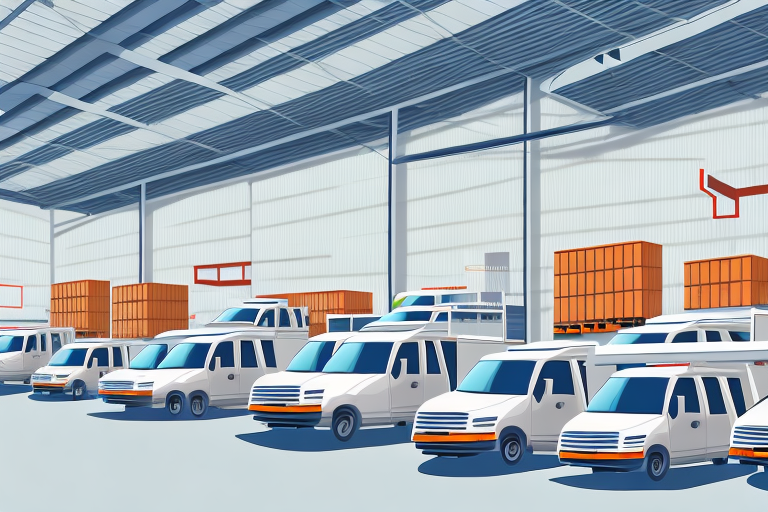Exploring the Rise of New Logistics Companies
The logistics industry has experienced significant growth in the number of new companies over the past few years. These emerging firms are capitalizing on the increasing demand for safe, swift, and cost-effective transportation of goods globally. Factors driving this surge include technological advancements, the expansion of e-commerce, and evolving customer expectations.
The Role of Technology in Logistics Growth
Advanced Logistics Software
Advanced logistics software utilizing big data, machine learning, and artificial intelligence has transformed the logistics sector. According to a Forbes report, AI can improve supply chain visibility and predictive analytics, leading to better decision-making. These technologies enable companies to optimize operations, reduce costs, and enhance efficiency.
Internet of Things (IoT)
The Internet of Things (IoT) has become pivotal in logistics, allowing the tracking of shipments, monitoring inventory levels, and optimizing transportation routes. IoT devices provide real-time data that enhances operational efficiency. Additionally, drone technology is increasingly used for last-mile delivery; for example, Amazon has expanded its drone delivery program to reach customers more rapidly (ZDNet).
Blockchain Technology
Blockchain technology offers a secure and transparent system for tracking and verifying transactions, reducing fraud and errors in the supply chain. A study by IBM highlights how blockchain can expedite cross-border transactions, a common challenge for logistics companies.
Virtual and Augmented Reality
Virtual and augmented reality technologies are being explored to train employees, simulate scenarios, and enhance workplace safety. For example, virtual reality training programs allow employees to practice safety procedures in a controlled environment, mitigating risks associated with hazardous situations.
Impact of E-commerce on Logistics Companies
Growth in Online Shopping
The explosion of e-commerce has significantly impacted the logistics industry. The number of shipments has increased, and the demand for faster delivery times has risen. According to a Statista report, global e-commerce sales surpassed $5 trillion in 2022, driving the need for more specialized logistics services.
Last-Mile Delivery Innovations
The rise of e-commerce has led to innovations in last-mile delivery, a critical component in the supply chain. New logistics companies are developing solutions such as on-demand delivery, real-time tracking, and integrated warehousing to meet the unique requirements of online retailers.
Adoption of Autonomous Delivery Solutions
Autonomous vehicles and drones are becoming more prevalent in last-mile delivery strategies. These technologies offer speed and cost-efficiency, with companies like UPS and FedEx investing in autonomous delivery research (UPS News).
Competitive Landscape in the Logistics Industry
Established Players versus New Entrants
The logistics sector comprises established giants like DHL, FedEx, and UPS, alongside innovative newcomers such as Flexport and ShipRocket. This mix intensifies competition, compelling traditional companies to adopt new technologies and adapt their business models to remain competitive.
Impact of New Entrants
New logistics companies are disrupting traditional business models by leveraging data analytics and offering flexible, customizable services. These entrants are able to personalize offerings, such as on-demand deliveries and customized packaging, which differentiates them from more conventional providers.
Challenges Faced by New Logistics Companies
High Competition
New logistics firms must navigate a highly competitive market dominated by established players with extensive infrastructure and economies of scale. Gaining market share while maintaining profitability is a significant hurdle.
Technological Adaptation
Keeping pace with rapid technological advancements is another challenge. Implementing cutting-edge technologies requires substantial investment, which may be challenging for startups with limited resources.
Regulatory Compliance
The logistics industry is subject to various regulations, and compliance can be complex and time-consuming. New companies must ensure adherence to local and international laws to avoid penalties.
The Future of Logistics: Trends and Predictions
Sustainability and Eco-Friendly Practices
There is a growing demand for sustainable logistics solutions. Companies are adopting green measures to reduce their carbon footprint, such as using electric vehicles and optimizing delivery routes for energy efficiency (McKinsey).
Digital Transformation
Digital technologies will continue to revolutionize logistics operations. Automation, AI, and blockchain are expected to play pivotal roles in enhancing supply chain transparency and efficiency.
Integration of Alternative Delivery Methods
Alternative delivery methods, including drones and autonomous vehicles, will become more integrated into logistics strategies, offering faster and more efficient delivery options.
Post-Pandemic Adjustments
The COVID-19 pandemic has accelerated digital adoption in logistics. Contactless delivery options and real-time tracking systems have become standard, and companies are investing further in digital infrastructure to meet ongoing consumer demand.
Evolving Customer Expectations and Their Influence on Logistics
Demand for Speed and Reliability
Customers now expect faster and more reliable delivery services. The demand for same-day and next-day deliveries drives logistics companies to innovate and streamline their operations.
Personalization and Flexibility
Modern customers seek personalized delivery experiences, including options for delivery times, locations, and packaging. Logistics companies are responding by offering more flexible and customizable services.
Enhanced Customer Experience
Logistics firms are investing in technologies that provide customers with real-time tracking information and seamless communication channels, thereby improving the overall customer experience.
Conclusion: The Evolving Logistics Landscape
The logistics industry is undergoing transformative changes driven by technological advancements, the rise of e-commerce, and shifting customer expectations. New logistics companies are playing a crucial role in this evolution, offering innovative solutions that challenge traditional business models. As the industry continues to adapt and grow, the integration of advanced technologies and sustainable practices will be essential for success.




















